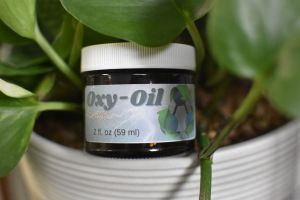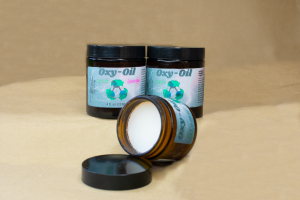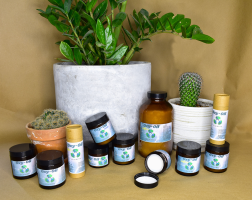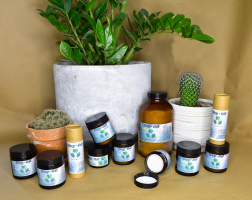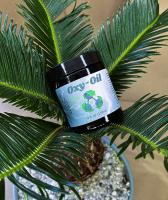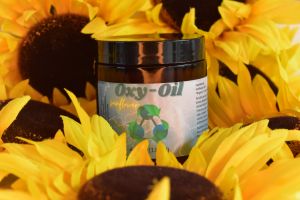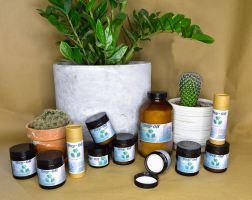Ozonated Oils: Nature's Remedy for Soothing Bug Bites
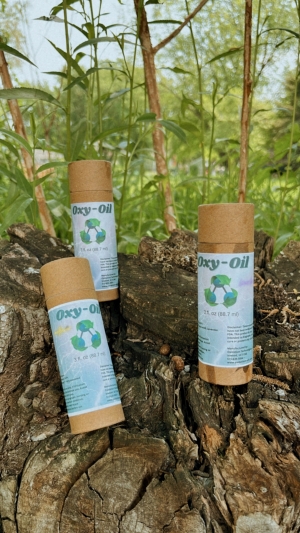
As warm weather arrives, so do pesky insects. Bug bites can quickly put a damper on your outdoor adventures, causing itchiness, redness, and discomfort. While there are numerous remedies available on the market, one natural solution stands out for its effectiveness: ozonated oils. Derived from the powerful combination of oxygen and natural oils, ozonated oils offer a range of benefits, including their ability to alleviate the unpleasant symptoms of bug bites. In this blog post, we will explore how ozonated oils can help soothe bug bites and provide relief.
Understanding Bug Bites:
Before delving into the role of ozonated oils, it is important to understand how bug bites affect our bodies. When insects like mosquitoes, flies, or spiders bite, they inject a small amount of their saliva into our skin. This saliva contains proteins that trigger an immune response, leading to the characteristic itching, redness, and swelling associated with bug bites. Scratching the affected area can further exacerbate the symptoms and may even lead to secondary infections.
The Power of Ozonated Oils:
Ozonated oils, also known as ozone oils, are produced by bubbling ozone gas through pure oils, such as olive oil, sunflower oil, or coconut oil. The ozone reacts with the unsaturated fatty acids present in the oil, transforming them into peroxides, ozonides, and other oxygen-rich compounds. These reactive oxygen species provide ozonated oils with their unique therapeutic properties, making them a valuable natural remedy for various skin conditions, including bug bites.
Benefits of Ozonated Oils for Bug Bites:
- Anti-inflammatory Properties: The inflammatory response triggered by bug bites is primarily responsible for the itching, redness, and swelling. Ozonated oils help reduce inflammation by inhibiting the release of pro-inflammatory molecules, thereby alleviating the discomfort associated with bug bites.
- Antimicrobial Activity: Scratching bug bites can break the skin and create an entry point for harmful bacteria, leading to potential infections. Ozonated oils possess powerful antimicrobial properties that help prevent bacterial growth and protect the affected area from secondary infections.
- Itch Relief: The itching sensation caused by bug bites can be relentless. The application of ozonated oils provides quick relief by soothing the itch and reducing the urge to scratch. The oxygen-rich compounds in ozonated oils promote skin healing, reducing the duration and intensity of itching.
- Accelerated Healing: Ozonated oils have been found to enhance the natural healing process of the skin. They stimulate tissue oxygenation, increase blood flow, and promote the production of collagen and elastin fibers, which aids in the healing of bug bites. Additionally, the oxygen in ozonated oils helps to increase cellular metabolism, facilitating the repair of damaged skin.
How to Use Ozonated Oils for Bug Bites:
Using ozonated oils to alleviate bug bite symptoms is simple and convenient. Follow these steps for effective relief:
- Clean the affected area with mild soap and water.
- Pat the area dry gently.
- Apply a small amount of ozonated oil directly to the bug bite.
- Massage the oil into the skin until absorbed.
- Repeat the application two to three times a day or as needed until symptoms subside.
Note: It is advisable to conduct a patch test on a small area of skin before using ozonated oils to ensure there is no adverse reaction.
Conclusion:
Bug bites can put a damper on your outdoor activities, but with the help of ozonated oils, you can find fast and natural relief. These oxygen-infused oils provide anti-inflammatory, antimicrobial, and healing


